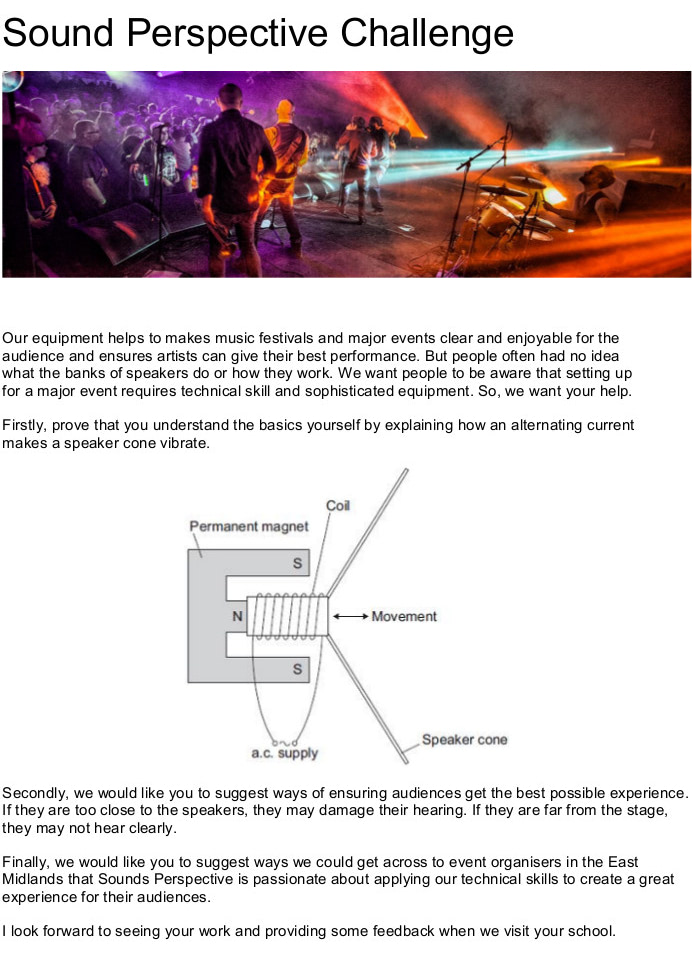Why schools should focus on a child’s achievements AFTER they leave school #NCW2019

“I also agree with him about the importance of embedding careers deep into the curriculum”.
That is how Secretary of State Damian Hinds responded to a question in the House of Commons on 4th February from Robert Halfon, Chair of the Education Select Committee.
His comment comes soon after Ofsted published its draft inspection framework that expects schools to enable young people to accumulate, “sufficient knowledge and skills for future learning and employment”. It appears there is now growing interest about how a child’s activity in the classroom prepares them for what they do in their life beyond school.
The statutory guidance for schools about Careers Guidance, published over a year ago, is built on eight benchmarks described in a report published by the Gatsby Foundation, in which the author acknowledges that benchmark 4 (Linking curriculum learning to careers) “is the most costly to do well because of the extensive training needed”.
But combining this with benchmark 5 (Multiple encounters with employers) creates the potential to create meaningful contexts for classroom learning. Indeed, the CBI’s recent ‘Educating for the Modern World’ report suggests that curriculum enrichment gives employers, particularly local employers, a “real opportunity to bring the curriculum to life”.
Practical Solutions
Forum Talent Potential (FTP) provides a step-by-step process for classroom teachers and careers leaders that cuts through the predicted ‘extensive training’, helping to bring classroom learning to life in partnership with employers.
This CPD programme, which has been shaped since 2012 with schools from Croydon to North Tyneside and resulted in a huge portfolio of case studies, fulfils an ambition within the draft Ofsted framework, to “create an environment that allows the learner to focus on learning … in a way that does not create unnecessary workload for staff”.
It achieves this by focusing on existing schemes of work and current lesson plans. Crucially, it helps to answer the question posed by many pupils in the classroom and sometimes expressed in their behaviour or non-attendance: ‘What’s the point of learning this?’
This CPD programme was part of the Gatsby National Benchmarks Pilot in the North East and it has been implemented in schools across the East Midlands. It is now supporting an initiative involving the Careers Hub for Greater Manchester, which embraces ten local authorities.
With over 40 Careers Hubs now being established, this signals an opportunity to develop learning communities of careers leaders who can work collaboratively to ‘plan, develop and share good practice’ – creating local case studies and engaging teaching staff within their respective schools. Careers Guidance need no longer be the responsibility of isolated specialists and champions.
Academic vs Vocational
Under the headline of “Traditional” schools must embrace project-based learning to reduce the skills gap, Lord Baker also encourages schools to bring classroom learning to life.
His comments are based on a report commissioned by the Edge Foundation, which he chairs, reviewing the model of learning in University Technical Colleges that involves work with local companies to embrace project-based learning and, he suggests, can, “provide a meaningful solution to this country’s large and widening skills gap”.
His foundation’s ‘Edge Future Learning’ initiative also promotes project-based learning, using a model from the USA, although it is difficult to see how the process could be upscaled and made sustainable, given the level of support that has been required for a handful of schools in the North East and limited evidence of success.
It was at an Edge Foundation event last month that Robert Halfon turned heads with his assertion that, “we must abandon GCSEs and move towards a holistic and far broader based baccalaureate”.
It would be easy to assume this implies a move towards vocational learning , but he went on to say that teachers must be given, ‘… the opportunity to work in partnership with local employers and community organisations to bring their curriculum alive with a rich mix of academic and work-life skills which will create a multi-skilled workforce for the future’. And a quick look through the dozens of case studies published by FTP shows that any subject can be brought to life through carefully planned ‘meaningful learning experiences’.
Student-Specific Impact
The impact of these experiences is recorded in terms of each child’s development of personal motivation, future aspirations and employability skills. So, it is encouraging to see that the draft Ofsted framework has now created a separate space for Personal Development, requiring schools to show how their curriculum and wider work helps pupils “to develop their character – including their resilience, confidence and independence’ and how “the provider prepares learners for future success in their next steps”.
Hopefully, inspectors will apply as much rigour to assessing how well a school records progression in each child’s personal development as they do to academic attainment and progression.
Recognising that every school should support each child’s employability learning journey has implications for leadership teams:
- What skills framework should be chosen to ensure use of a consistent language across a range of activities and each year group?
- Where will timetable space be created for students to periodically reflect on how self-assessment records from a range of activities informs their thinking about future education, training and employment?
But done well, this should help to avoid the all-too-frequent blank expression on a child’s face when meeting a careers adviser at the end of Key Stage 4 or when drafting a personal statement for an UCAS application.
Starting this learning journey at an early age helps young people get into the swing of Personal Development, which ultimately evolves into Professional Development throughout their working lives.
Multi-academy trusts are ideally placed to introduce the necessary support and procedures and to benefit from efficiencies. After all, if an employer-linked curriculum project has been successful in one school, why would the ideas and resources not be reused when the topic is next covered and shared with other schools in the network. And why would they not do so, when bringing subject learning to life helps students to discover the point of working hard at school by getting a glimpse of where and what they could be in the big wide world?
Academic attainment AND informed choice: It is possible to have your cake and eat it.
Gerard Liston, Enterprise & Employability Education Consultant
Two recent case studies illustrate how a partnership approach can place modest demands on employer partners but have an impact on a large number of students in academic subjects:

Case Study 1: GCSE students learn about electromagnetism and ‘motor effect’
A CPD event involving all teaching staff at Murray Park Community School in Derby resulted in 18 briefs being submitted for curriculum projects. One from the Science team focused on GCSE Science: “The Motor Effect is a subject that pupils struggle with, but they use motors every day. As it is a difficult concept and pupils become unmotivated … I would love to see pupils be able to see the motor effect on a grander scale. I would also like them to be able to link it to everyday ideas such as speakers …”
A typical GCSE question about the workings of a loudspeaker was adapted into a purposeful challenge from Sound Perspective, a local small firm that provides sound equipment for music performances and large-scale outdoor events. The managing director provided two short video clips recorded on his mobile phone from a client venue in Hastings – one before and one during the event, showing their equipment in use and then setting a challenge:
‘We want you to prove that you understand the basics about speakers and suggest ways of ensuring audiences get the best possible experience. We also want fresh ideas about how we could get across to event organisers in the East Midlands that Sounds Perspective is passionate about applying our technical skills.’
Teaching staff noticed how hard the students worked in the classroom and how proud they were of their work. Impact assessment included use of the Skills Builder framework, a set of employability skills that is used nationally and will form part of the school’s ongoing monitoring of personal development for their students.
Pictures:
Worksheet summarising the challenge from PA specialist Sounds Perspective
Example of student work, with ideas about sound systems, as well as explaining ‘Motor Effect’
Case Study 2: ‘Cold climates’ comes to life in year 7 Geography
The teacher brief for this project at Joseph Whittaker School near Mansfield explained, ‘It would be good to get some enrichment with the threats to cold environments and why they need protecting’, adding, “it is often hard for students to engage as they are so far removed from the area”.
Website investigations revealed that the British Antarctic Survey were embarking on a major redevelopment of Rothera Research, a centre for biological research and deep-field science.
Students were challenged to:
- Write a short report advising British Antarctic Survey how you think they should complete this building project and minimise damage to Antarctica, and
- Find out about the many people who work for British Antarctic Survey. In one paragraph, explain which job looks interesting – and why?
The contractor for the project, Glasgow-based BAM Nuttall, added information to the students’ brief, including a message and photograph from the Project Manager: “It was a major logistical undertaking to get every single thing needed to build a wharf in freezing Antarctic waters loaded onto one ship. One month and 11,000km later, it is very good to see all that hard work paying off.”
Examples of the students’ work were sent to BAM Nuttall for feedback. Their recommendations included using double-hull ships to reduce the risk of pollution, less drilling to minimise disturbance to wildlife and possibility of earthquakes and increasing the amount of construction carried out in the UK. The students expressed interest in job roles they researched from the British Antarctic Survey website, including site photographer, marine mammal ecologist and being part of the air operation team.
Pictures:

Extract from impact data revealing students’ personal motivation












Responses